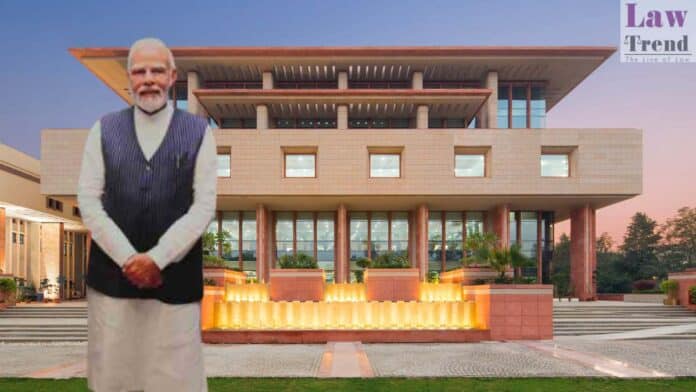The Delhi High Court on Wednesday asked the Delhi University (DU) to file its response to applications seeking condonation of delay in filing appeals. These appeals challenge a single-judge order that had set aside a Central Information Commission (CIC) decision directing the disclosure of details concerning Prime Minister Narendra Modi’s bachelor’s degree.
A division bench comprising Chief Justice Devendra Kumar Upadhyaya and Justice Tushar Rao Gedela granted the university three weeks to file its objections to the delay condonation applications.
The bench was informed that there was a delay in the filing of the appeals against the single judge’s order from August 25. “Solicitor General of India Tushar Mehta appears for the respondent (Delhi University). Objection to the applications seeking condonation of delay may be filed within three weeks. Response to the said objection, if any, be filed by the appellants in two weeks thereafter,” the bench stated in its order.
The court has scheduled the matter for further hearing on January 16, 2026.
The case involves four separate appeals challenging the single judge’s decision. The appellants include Right to Information (RTI) activist Neeraj, Aam Aadmi Party leader Sanjay Singh, and advocate Mohd Irshad.
On August 25, the single judge had quashed the CIC’s order, ruling that just because PM Modi holds a public office, it does not “render all his ‘personal information’ to public disclosure.” The court had found no “implicit public interest” in the information sought and observed that the RTI Act was intended to promote transparency in government functioning, “not to provide fodder for sensationalism.”
The original CIC order, dated December 21, 2016, had stemmed from an RTI application by Neeraj, which allowed the inspection of records for all students who passed the BA examination in 1978, the same year Prime Minister Modi is stated to have passed.
The single judge’s combined order had disposed of six petitions, including one from Delhi University, challenging the CIC’s directive. While DU’s counsel sought the CIC order to be set aside, they had maintained no objection to showing records to the court.
The single judge had opined that educational qualifications are not a statutory requirement for holding public office or discharging official duties. The judge further noted that the situation might have been different if such qualifications were a pre-requisite for eligibility, calling the CIC’s approach “thoroughly misconceived.”
In the same judgment, the high court had also set aside a separate CIC order that directed the CBSE to provide copies of Class 10 and 12 records of former Union minister Smriti Irani.




